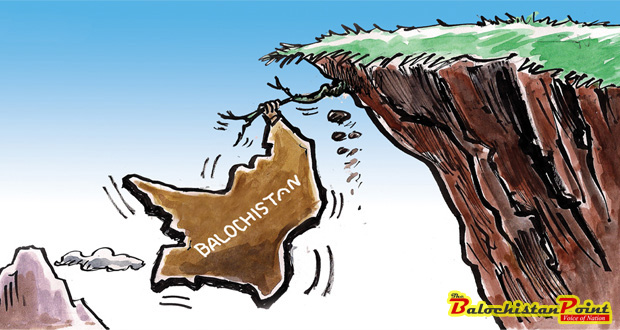By Mariyam Suleman
One of the bloodied attacks in Balochistan on 13th July during an election campaign took more than hundred lives and injured more than hundred others. Recalling all such attacks in the last one decade in the province, one can find thousands of people killed and injured. What makes it easy for the terrorists to target the same places again and again is simple; the failure of law enforcement agencies and the democracy that claims to protect lives of citizens.
Few of the political parties sympathized with the victims of last week and cancelled their electoral rallies in different cities of Balochistan. Though such attacks have now become common in the province, there is something that is different this time – Parliamentary elections in Balochistan for July 25 are winning general acclaim and acceptance after almost two decades of insurgency, yet a circumnavigation of the political and social dynamics in Balochistan would be useful to review how democracy is limited to an illusion in the province.
With a quick glance one can find; misled and often hardly informed public, opinions and often polls controlled by nonpolitical machines favoring obedient mediocrities, presence of tribalism, high level of corruption, violation of human rights, often incompetent candidates, banning local newspapers and blocking news websites, presence of religious extremism and office holders subservient with wealth and prestige – this list is somehow not much different than the rest of the country. So, what makes Balochistan a special case?
Perhaps, power shift between three different chief ministers in five years, very low turnout in the last two elections – as such 1% in few districts, sudden emergence of a strong political party previously unknown, the fate of province controlled by invisible forces, political engineering, power game of tribal politics, romanticizing nationalism, few candidates alleged as assailants and connected with religious insurgent groups or the increasing insecurity in the province.
Of course, many of us would still favor a faulty democracy – as such in Balochistan. But when democracy excesses with flaws, it only exists in the framework and is itself a shift toward authoritarianism. And since there is no or very little effort to change these defects into achievements, the gap between democracy and our government continues to grow.
What contributes for this overwhelming growth is not only government’s failure to protect its citizens, but also its failure to provide other basic services essential for democracy. The staggering literacy rates in the province where over half of the population is not well informed with very limited opportunities for intellectual growth is again a threat to democratic process.
There is no democracy without the engagement of citizens, and there is no sustaining and developing of democracy without “educated, aware and well-informed citizens”. On the other hand, local newspapers and news websites working toward a more informed and free society are often forced to close and blocked – though the democratic right of citizens to a free press are guaranteed in the constitution.
Another of the important demands of democracy is well educated and competent office holders who would deny obedience toward any other nonpolitical machine in every possible way – it again remains a huge challenge. And therefore, most political parties are too busy with electioneering and campaigning with vague manifestos, to have time to think how lack of basic rights of education, health, water, electricity and public safety are holding socioeconomic development and suppressing progress of democracy in the province.
While the link between democracy and human rights is a crucial part of constitution, it is barely evident in Balochistan where human rights violations swept away the stability and peace of the province in the last two decades. True, a powerful judiciary rescues democracy ending violation of human rights and making access to justice for all with ease. However, a weak judiciary – as such in Balochistan – piles thousands of such cases that never reach the court.
The promise of equality is also sidelined with tribalism in the province where political parities headed by tribal leaders romanticize nationalism and “hereditary democracy” – thus are less criticized as compared to other parties. Having less informed public is a benefit in such cases when public is bribed not to cast their vote but instead – to vote their caste or tribe.
However, in many cases voters’ stance do not make much difference. For instance, a candidate with only 1% votes can not only become a member of the Provincial Assembly but also the Chief Minister, or decision of who becomes the next chief minster can be made invisibly – that says democracy is not more than an illusion in the province.
Although, the recent attack disturbed the entire province yet the current elections in Balochistan are getting popularity with several public meetings of candidates, first-ever use of social media for campaigning and participation of a large part of the population in the campaigning process. But again, before judging the recent elections as a “change” – we should remind ourselves that it is the flaws and weaknesses of the process that have yet not changed much.
Published in The Balochistan Point on July 21, 2018
 Balochistan Point Voice of Nation
Balochistan Point Voice of Nation




